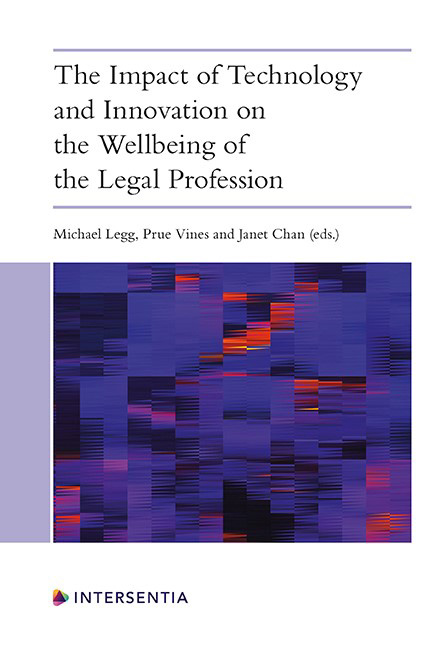Chapter 11 - Lawyers’ Fee Arrangements and their Wellbeing
Published online by Cambridge University Press: 22 December 2020
Summary
INTRODUCTION
Typically, methods of charging are examined through the lens of professional ethics and/or economics: what is permitted by the conduct and practice rules, and who‘wins‘ and‘loses‘ between the lawyer and client depending on the form of charging employed.This chapter investigates lawyers‘ billing methods for their relationship to lawyers‘ wellbeing– or lack of wellbeing.
A growing research base has established that the wellbeing of lawyers is generally poor. Meanwhile, lawyers‘ charging methods have been singled out as‘ the lifeblood of the legal profession, crucial to the livelihood of the majority of lawyers‘. To date, there has been little discussion on the connection between the two. As the sole exception, the billable hour has been identified as a significant causal or correlative factor in lawyer distress, or at least in their declining work conditions. Time-based billing involves charging the client by reference to the time taken to complete the work required, multiplied by each lawyer‘s hourly rate. The billable hour is impugned because of its role in performance review, especially in large law firms, representing an intense form of management and audit.
Largely in response to client demands and expectations, there has been increasing adoption of Alternative Fee Arrangements (AFAs). Alternatives to the billable hour are not strictly new, as other forms of billing such as scales of fees, fixed fees and contingency fees have a long history– but for at least the past 40 years the billable hour, with its use of timesheets and six-minute increments, has been the dominant form of fee arrangement.This chapter considers whether this move towards AFAs, including value-based billing, signals a positive change for the wellness of lawyers, or whether AFAs have their own implications for lawyer distress. As part of this analysis, the authors consider whether the wellbeing critique of billable hours is a fair one.
- Type
- Chapter
- Information
- Publisher: IntersentiaPrint publication year: 2020



